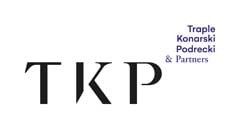News and developments
EU fight against illegal logging and new obligations for entrepreneurs
Entrepreneurs have to comply with new EU legislation not later than until 30 December 2024. Soon, many of them will have to realise obligations to reduce deforestation and forest degradation.
New EU legislation on deforestation
As part of its efforts to combat climate change, the European Union has recognised that deforestation and forest degradation are significant contributors to greenhouse gas emissions. Deforestation and forest degradation are the result of agricultural land expansion, which is linked to the production of certain goods. As one of their largest consumers, the EU has an opportunity to reduce its impact on global deforestation by promoting products and supply chains that do not contribute to forest destruction. To reduce its negative impact on the environment, the Union has introduced a new regulation to combat deforestation.
Adopted on 31 May 2023, the Regulation of the European Parliament and of the Council (EU) on deforestation and forest degradation (EUDR) is in force from 29 June 2023. This document repeals and replaces the previous EU Regulation 995/2010.
Effective date of the requirements
The rules on the dates when the various provisions of the Regulation will come into effect are quite complicated. The Regulation shall enter into force on 29 June 2023 with the proviso that a large part of the provisions, mainly in terms of prohibitions and obligations for entrepreneurs, shall enter into force as of 30 December 2024. The Regulation shall apply to products produced after 29 June 2023 – this applies only to the date of production and not to the date of placing on the market.
An exception to the above rules is timber and timber products. If they were produced before 29 December 2023 and placed on the market between 30 December 2024 and 31 December 2027 - the provisions of the previous EU Regulation apply. Conversely, if produced before 29 December 2023 and placed on the market after 30 December 2027 – the provisions of the new EU Regulation apply.
Scope of the Regulation
The new rules regulate the marketing of products on the European Union market and the export from the EU of products which contain certain commodities (raw materials), as well as products which have been manufactured using or fed with such commodities. The rules apply to all traders/entrepreneurs in the European Union who place on the market, make available on the EU market and export certain products from the Union. The Regulation covers the following categories of goods: cattle, cocoa, coffee, oil palm, rubber, soya and timber.
The link between the above goods and products should be considered as broadly as possible. For example: a trader wants to market a chocolate bar. He/she purchases chocolate from his/her supplier, which he/she will use in the production of this bar. In such a situation, it will be necessary for the trader to examine whether the cocoa used in the manufacture of the chocolate comes from legal sources and whether it meets the standards set out in the Regulation.
Requirements for entrepreneurs
Traders/entrepreneurs who place on the market, make available on the Union market or export from the Union the aforementioned products must demonstrate due diligence and prove that these products:
All these elements must be met simultaneously.
Due diligence system
The due diligence system implemented by entrepreneurs shall include:
Companies are required to regularly review and document their risk assessment at least once a year to ensure that products comply with the new regulations.
Consequences for non-compliance
To enforce the new rules, the Regulation provides for a system of sanctions such as:
To summarise, the European Union has introduced new rules to reduce deforestation and forest degradation, which are effective from 29 June 2023. However, the key requirements for entrepreneurs will come into force on 30 December 2024. Traders/entrepreneurs will have to demonstrate that their operations do not contribute to deforestation, comply with the laws of the country of production and are covered by a due diligence system. As part of their due diligence system, companies must collect relevant data, assess risks and take preventive action. There are serious sanctions for non-compliance, including financial penalties and trade bans.
Author: Michał Sobolewski and Klaudia Nowak
